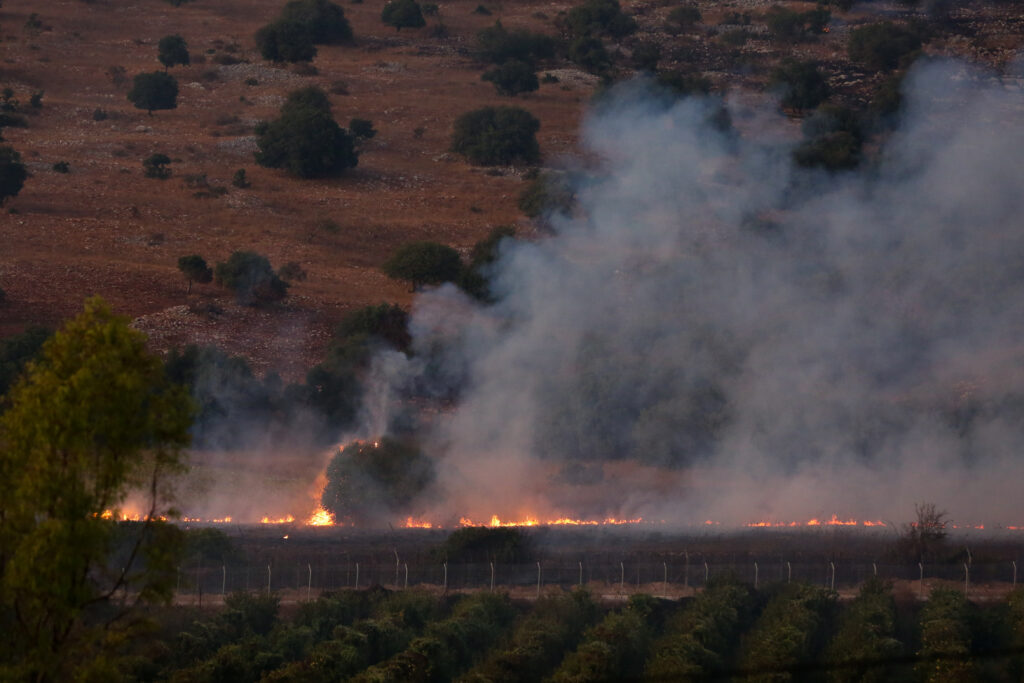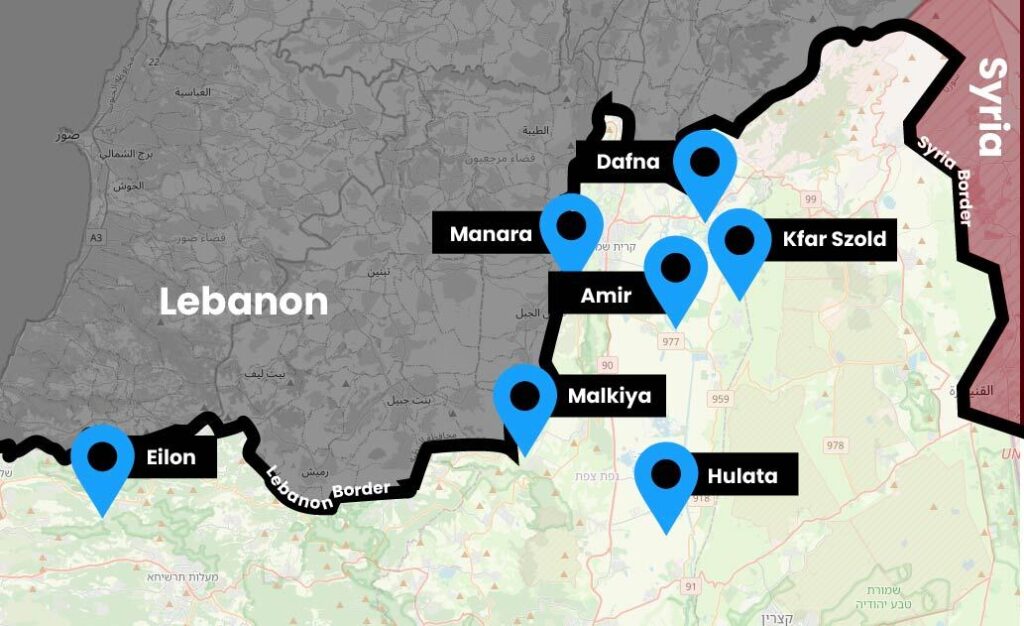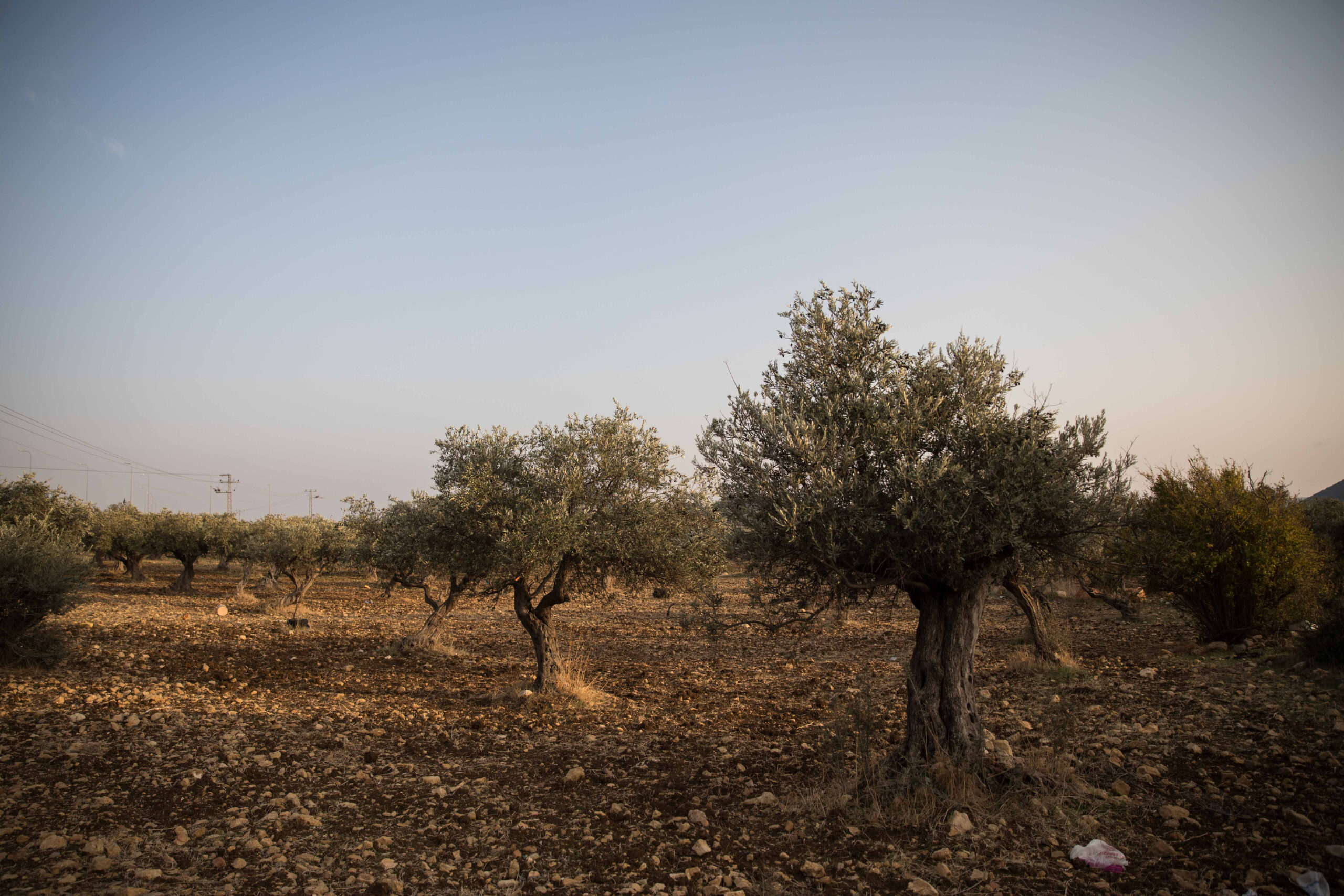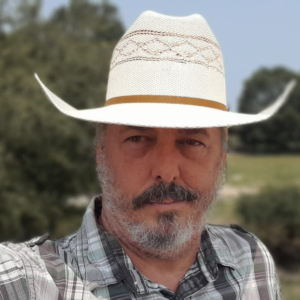The ancient hills of northern Israel have witnessed centuries of growth and renewal. Today, they face one of their greatest challenges yet. As rockets fell across the northern border last year, they didn’t just strike buildings – they scarred the very land itself, devastating orchards that have sustained communities for generations.
For decades, the orchards of Israel’s Northern border kibbutzim stood as living symbols of perseverance and promise. These weren’t just trees; they were the economic backbone of entire communities. They produced an abundance of apples, kiwi, cherries, plums, citrus fruits, avocados, and bananas. Vineyards flourished on hillsides, continuing an agricultural tradition thousands of years old.
Then the rockets came.
The devastation was immense: 1,709 acres obliterated by Hezbollah rockets. In some communities, up to 80% of arable land was destroyed – orchards that took decades to establish reduced to ash in moments.
This Passover campaign targets precisely where help is most urgently needed. Of the 35 northern kibbutzim totaling 20,871 people, a local committee has identified seven communities home to 5,189 people as the most severely affected. This strategic approach means helping 25% of the northern kibbutzim population – communities whose agricultural heritage and economic foundation now hang in the balance.

There could be no more fitting time than Passover for this campaign. As the holiday of liberation and spring arrives, the words of Ezekiel echo with renewed significance: “But you, mountains of Israel, will produce branches and fruit for my people Israel, for they will soon come home.”
Passover celebrates renewal after hardship, freedom after bondage, and the journey toward a promised land of milk and honey. Today, that same spirit of renewal takes physical form in each tree planted in scorched earth.
100,000 Trees: Seeds of Restoration and Hope
The campaign’s ambitious goal – 100,000 fruit trees planted this Passover – addresses three vital needs:
- Restoration of the Land – Each tree revives fertile soil and begins healing the ecological damage.
- Livelihoods and Sustainability – These orchards provide food security and economic stability for entire communities.
- Roots of Resilience – Every planting represents defiance in the face of destruction and faith in tomorrow.

This is about more than agriculture – it’s about preserving a way of life, sustaining communities, and ensuring that families can remain on the land they’ve cultivated for generations.
The countdown clock on the campaign page isn’t just for dramatic effect – it marks the narrow window when planting must occur. For just $10, you can sponsor a fruit tree that will stand for decades, providing nourishment, income, and hope.
Each tree planted helps transform desolation back into the flourishing land promised throughout Jewish history. The orchards that grow will provide livelihood and sustenance for years to come, healing not just the land but the communities that tend it.

From Destruction to Renewal
The traditional Passover Seder concludes with the hopeful words “Next year in Jerusalem.” This campaign embodies that same forward-looking spirit – acknowledging current hardship while actively building a better future.
As families worldwide gather to commemorate ancient liberation, you can help them participate in a modern-day renewal. The trees planted today will bear fruit for decades, standing as living testaments to resilience, hope, and the unbreakable cycle of renewal that Passover celebrates.








